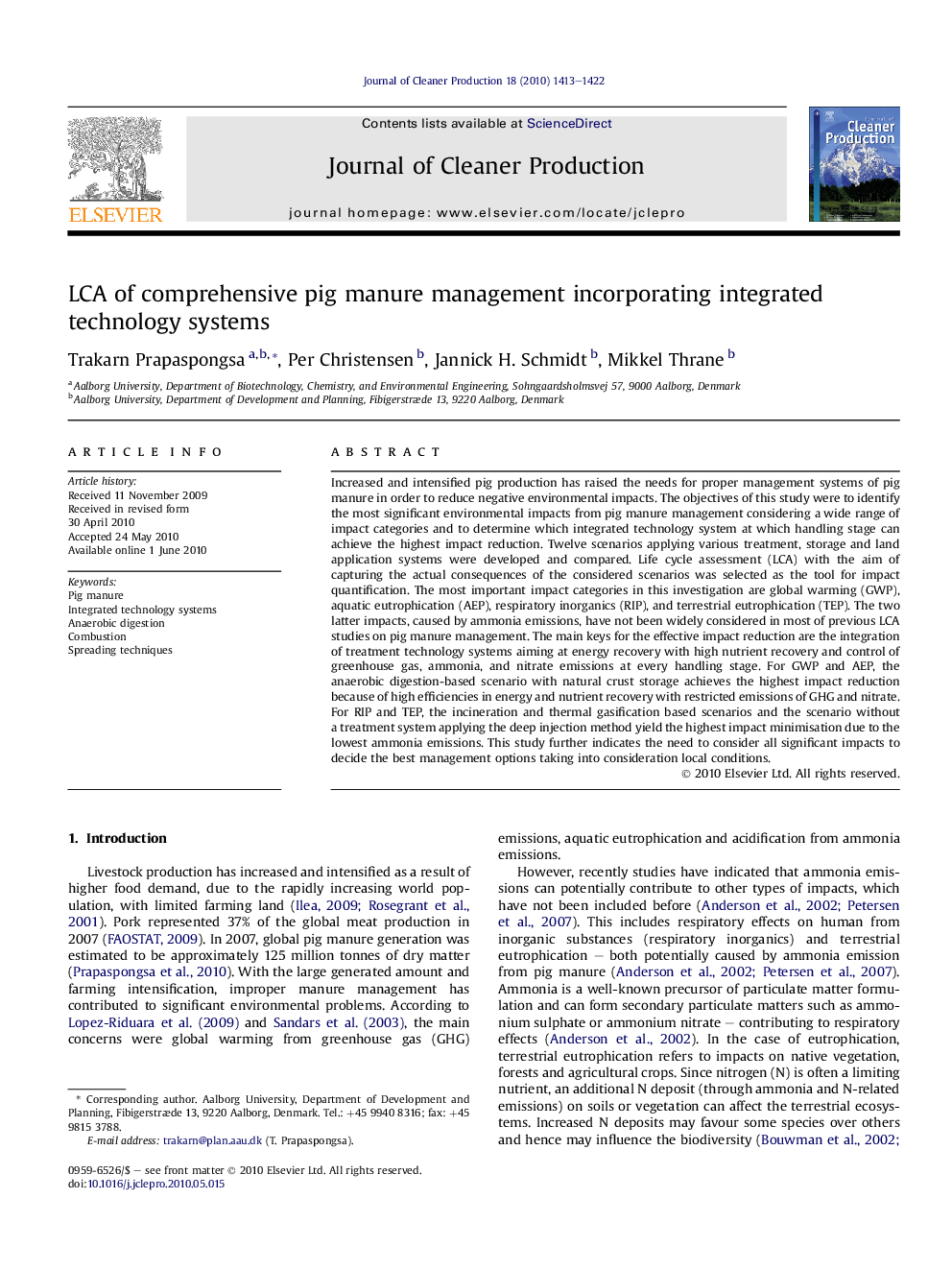| Article ID | Journal | Published Year | Pages | File Type |
|---|---|---|---|---|
| 1746495 | Journal of Cleaner Production | 2010 | 10 Pages |
Increased and intensified pig production has raised the needs for proper management systems of pig manure in order to reduce negative environmental impacts. The objectives of this study were to identify the most significant environmental impacts from pig manure management considering a wide range of impact categories and to determine which integrated technology system at which handling stage can achieve the highest impact reduction. Twelve scenarios applying various treatment, storage and land application systems were developed and compared. Life cycle assessment (LCA) with the aim of capturing the actual consequences of the considered scenarios was selected as the tool for impact quantification. The most important impact categories in this investigation are global warming (GWP), aquatic eutrophication (AEP), respiratory inorganics (RIP), and terrestrial eutrophication (TEP). The two latter impacts, caused by ammonia emissions, have not been widely considered in most of previous LCA studies on pig manure management. The main keys for the effective impact reduction are the integration of treatment technology systems aiming at energy recovery with high nutrient recovery and control of greenhouse gas, ammonia, and nitrate emissions at every handling stage. For GWP and AEP, the anaerobic digestion-based scenario with natural crust storage achieves the highest impact reduction because of high efficiencies in energy and nutrient recovery with restricted emissions of GHG and nitrate. For RIP and TEP, the incineration and thermal gasification based scenarios and the scenario without a treatment system applying the deep injection method yield the highest impact minimisation due to the lowest ammonia emissions. This study further indicates the need to consider all significant impacts to decide the best management options taking into consideration local conditions.
